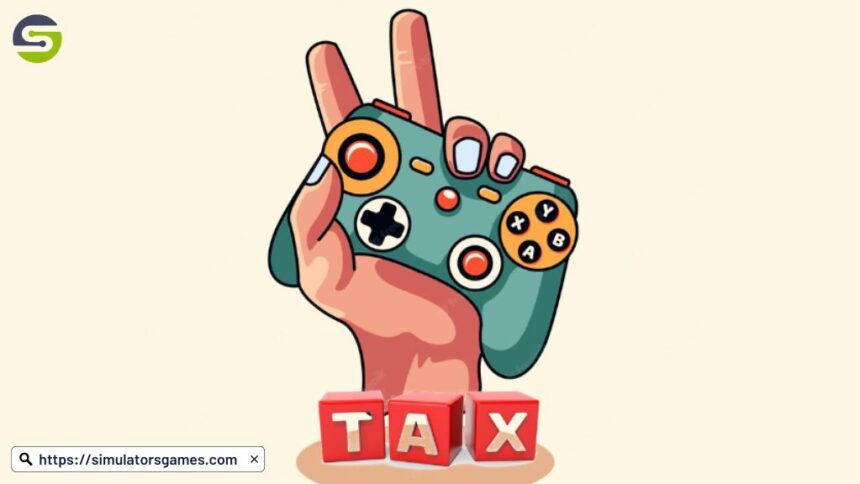The recent decision by the 50th GST Council to impose a 28% Goods and Services Tax (GST) on online gaming has sparked strong opposition from stakeholders in the industry.
Industry leaders argue that this move is not only unconstitutional but also detrimental to the thriving online gaming sector in the country.
The decision, they claim, fails to distinguish between skill-based online gaming and gambling activities, disregarding established legal jurisprudence.
Roland Landers, CEO of the All India Gaming Federation, strongly criticized the decision, describing it as unconstitutional and egregious.
He warned that implementing the 28% GST rate would lead to the collapse of the Indian gaming industry, resulting in the loss of hundreds of thousands of jobs.
Landers expressed concerns that this decision will only benefit illegal offshore gaming platforms, posing risks to users and undermining the nation’s interests.
Joy Bhattacharjya, Director-General of the Federation of Indian Fantasy Sports (FIFS), voiced disappointment regarding the 28% GST on the total entry amount, including prize money.
Bhattacharjya argued that this valuation change would cause irreparable damage to the industry, result in revenue losses for the government, and lead to the loss of employment for skilled engineers.
Industry leaders also expressed concerns that imposing a high GST rate will drive users toward illegal betting platforms, increasing user risks and causing revenue losses for the government.
They believe that a more reasonable tax rate, such as 18%, would have been more conducive to the growth and sustainability of the gaming industry.
Finance Minister Nirmala Sitharaman defended the decision, stating that it was not intended to target any specific industry.
She emphasized that the decision was made after consulting with all members of the GST Council, including representatives from states like Goa and Sikkim, where casinos play a significant role in the tourism sector.
Industry experts, however, warn that the 28% tax rate will pose significant challenges to the gaming industry.
Aaditya Shah, COO of IndiaPlays, expressed concerns about the higher tax burden limiting companies’ cash flows and hindering their ability to invest in innovation, research, and business expansion.
Shah emphasized the importance of distinguishing between skill-based games and casinos/betting apps, as they should be treated differently.
Siddharth Sharma, SVP – Business Strategy, Head Digital Works (A23), stated that the new tax rate on Gross Gaming Value will have far-reaching consequences
The industry, compressing innovation and opportunities. He highlighted that the burden will hinder the growth of the nascent industry.
The online gaming sector has created over 200,000 jobs, and experts argue that this decision undermines India’s startup ecosystem.
Industry leaders urge the GST Council and the government to reconsider this decision, emphasizing that it disregards the views of most Group of Ministers (GoM) states that thoroughly studied the matter.
The imposition of a 28% tax rate on online gaming has drawn mixed reactions from the industry. Sagar Nair,
Co-founder and CEO of Qlan, the Gamers’ Social Network, expressed concern about the impact on the competitive gaming community, stating that the higher tax rate is not justified for this segment.
Rohit Agarwal, Founder & Director of Alpha Zegus, highlighted the disadvantage faced by the esports industry due to its inclusion with other sectors like online gaming, horse racing, and casinos.
Agarwal emphasized that esports involves skill rather than luck, and the industry continues to fight for its separate identity.
Gaming and sports media platform Nazara emphasized that the tax would apply only to the skill-based real money gaming segment, constituting 5.2% of their consolidated revenues.
The company stated that it would proactively mitigate any potential impact on this segment, expecting a minimal impact on overall revenues.
While the decision has been described as “clarificatory” in nature, experts argue that it falls short of industry expectations.
Pratik Jain, Partner at Price Waterhouse & Co LLP, suggested that making the proposal prospective would have put past disputes to rest.
Kartik Solanki, Partner-Indirect Tax at BDO India, expressed concerns about the significant increase in tax incidence for the online gaming industry.
He also highlighted the uncertainty regarding liability for past periods, which is already subject to dispute.
As the debate over the 28% GST rate on online gaming continues, industry stakeholders remain hopeful.
The GST Council and the government will reconsider this decision, considering the potential consequences for the gaming industry and the larger startup ecosystem.
Excerpt:
The recent decision to impose a 28% Goods and Services Tax (GST) on online gaming has drawn strong opposition from industry leaders, who argue that the move is unconstitutional and detrimental to the thriving gaming sector.
The decision, they claim, fails to differentiate between skill-based gaming and gambling, ignoring established legal principles.
Concerns have been raised regarding potential job losses, increased risks for users, and revenue losses for the government.
Industry experts suggest that a more reasonable tax rate would have been more conducive to the growth and sustainability of the gaming industry.
As the debate unfolds, stakeholders are hopeful that the authorities will reconsider the decision, considering the potential impact on the industry and the wider startup ecosystem.
Read More: SWORL: The Innovative Controller Redefining Gaming Experience Beyond Fighting Games






